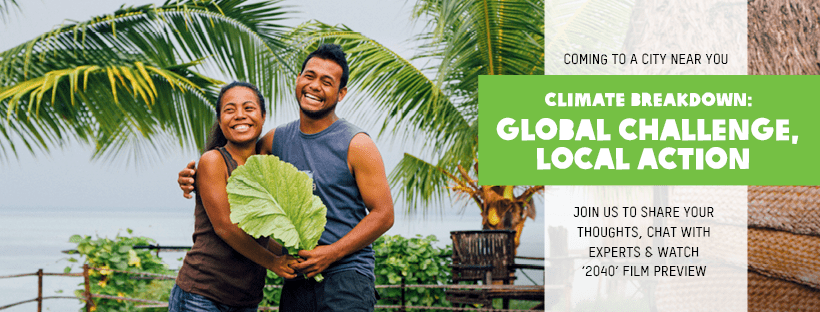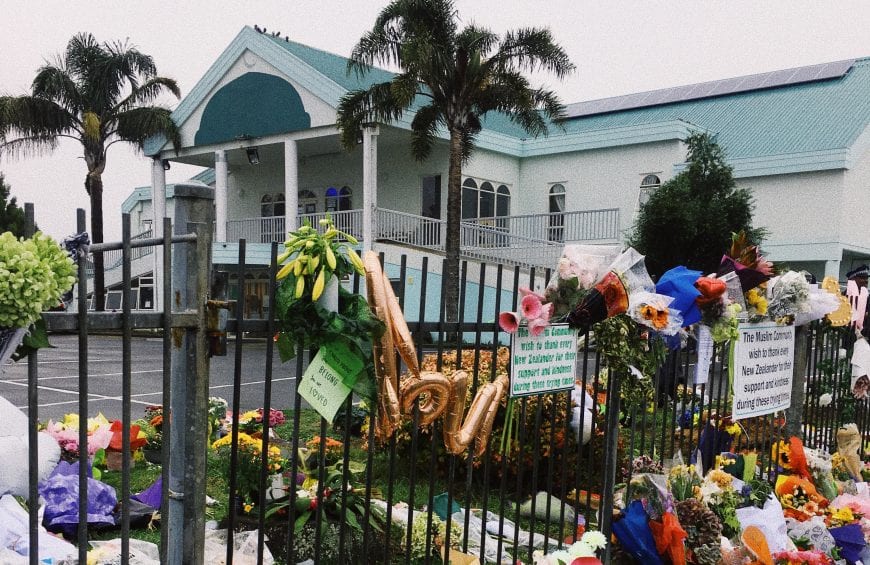Climate: Global challenge, local action.
Oxfam New Zealand is starting a tour around the country next week to host discussions about the impact of climate breakdown in regions from Auckland to Dunedin.
The Climate Breakdown: Global Challenge, Local Action series of events will showcase a special pre-release excerpt of the film 2040 and a panel discussion with local leaders, from student activists to council representatives, moderated by Oxfam New Zealand’s executive director Rachael Le Mesurier.
Le Mesurier said she is looking forward to listening to initiatives and ideas about how communities are working together to tackle climate breakdown, how these connect into the actions being taken in the Pacific by like-minded local communities and how they offer opportunities for our individual and collective actions.
“At Oxfam we see daily evidence of communities being dramatically affected by climate destruction, but also fighting hard to adapt to and mitigate its effects.
“It’s inspiring to see the rise in people power – protests, innovative solutions, influencing MPs, communities building climate resilience together – often being led at a grassroots level. We’re interested to hear what people think we might do more of to inspire action on a large scale.
“Climate breakdown is no longer a faraway problem. Communities in New Zealand are also being affected by rising sea levels and extreme weather. Our farming community will likely be dealing with even more intense rains, longer dry periods and higher heat, and a number of other impacts in the coming few years.
“The poorest people, wherever they may be, will continue to be hit hardest. While individual efforts are important, collective action across regions and on the international stage is even more crucial for the world to successfully prevent the worst of climate destruction.
“Oxfam works with vulnerable communities all over the world to help them increase their climate resilience, but especially in Pacific Island nations who are leading the charge against further destruction. What we see is that Kiwis have a lot in common with our Pacific neighbours. We rely on the land, we are connected to the sea, we have the wisdom of indigenous communities guiding efforts that protect our earth for future generations. We can work together to better meet this challenge.”
All are invited to participate in the events, being held in seven cities around New Zealand. Each event will include an exclusive preview of footage from innovative feature documentary 2040, by award-winning director Damon Gameau (That Sugar Film). Panellists from each region will discuss the issues facing their communities due to climate breakdown with a focus on community-led solutions and collective action within the global movement for a more sustainable future.
Find out more about an event near you and RSVP here.
Climate Breakdown: Global Challenge, Local Action dates:
Dunedin – 5 August
Christchurch – 6 August
Nelson – 8 August
Hamilton – 19 August
Tauranga – 20 August
Wellington – 27 August
Auckland – 5 September







